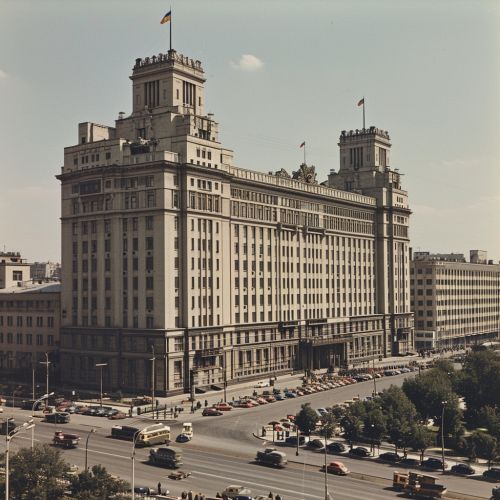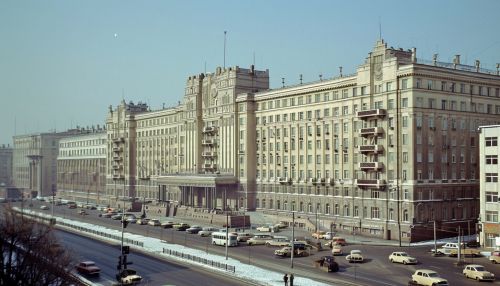Politics of the Soviet Union
Ideological Foundations
The Communist Party was the ruling and only legal party in the Soviet Union. The Party's ideology was Marxism-Leninism, a political philosophy that combined the theories of Marx and Lenin. Marxism-Leninism was the guiding principle for the Soviet Union's domestic and foreign policy, as well as its economic and social structure.
Political Structure
The political structure of the Soviet Union was defined by its constitution, which established a nominally federal multiethnic state with a centralized political system. The highest legislative body was the Supreme Soviet, which was elected by universal suffrage. However, in practice, the Communist Party held all the power, with the Supreme Soviet largely serving as a rubber-stamp institution.


Communist Party
The Communist Party was the central institution in Soviet politics. It controlled the government, the military, the economy, and the cultural and educational institutions. The Party was organized on the principle of democratic centralism, a concept developed by Lenin that combined central leadership with local and grassroots participation.
Leadership
The highest position in the Soviet Union was the General Secretary of the Communist Party. This position was held by figures such as Lenin, Stalin, Khrushchev, and Gorbachev. The General Secretary was the de facto leader of the Soviet Union, with immense power and influence.
Government Institutions
The government of the Soviet Union was composed of several institutions, including the Council of Ministers, the Presidium of the Supreme Soviet, and the Council of People's Commissars. These institutions were responsible for implementing the policies and directives of the Communist Party.
Economic Policy
The Soviet Union's economic policy was based on a system of state ownership and central planning. The economy was organized according to a series of Five-Year Plans that set production targets and allocated resources. This system was intended to create a socialist economy that would surpass the capitalist economies of the West.
Foreign Policy
The foreign policy of the Soviet Union was driven by the ideological goal of world communism. This led to the Soviet Union's involvement in various international conflicts and its support for communist movements around the world. The Cold War with the United States was a major aspect of Soviet foreign policy.
Dissent and Opposition
Dissent and opposition to the Soviet regime were not tolerated. The state used various methods to suppress dissent, including censorship, propaganda, and political repression. The KGB was the main security agency responsible for maintaining state security and suppressing opposition.
Collapse of the Soviet Union
The Soviet Union collapsed in 1991, following a period of economic and political crisis. The collapse was marked by the dissolution of the Communist Party, the independence of the Soviet republics, and the end of the Cold War.
